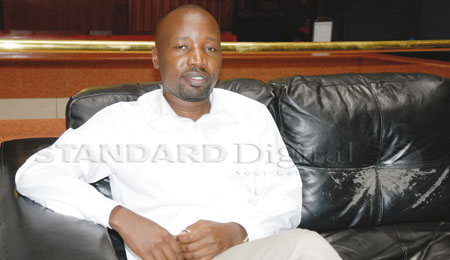×
The Standard e-Paper
Home To Bold Columnists
 |
| Dr.Bwombuna at Scanlab Diagnostic Centre. The facility is among the few in Nakuru that specialise in cancer screening and other radiological procedures. [PHOTO: MAUREEN AKINYI/STANDARD] |
Dr Brian Bwombuna, 32, a consultant radiologist quit a well-paying job to start his own diagnostic lab — Scanlab Diagnostic Centre, with state of the art technology. It has been a rocky path transitioning successfully from comfortable employment to uncharted territory. He shares his journey with Maureen Akinyi
Tell us briefly about yourself.